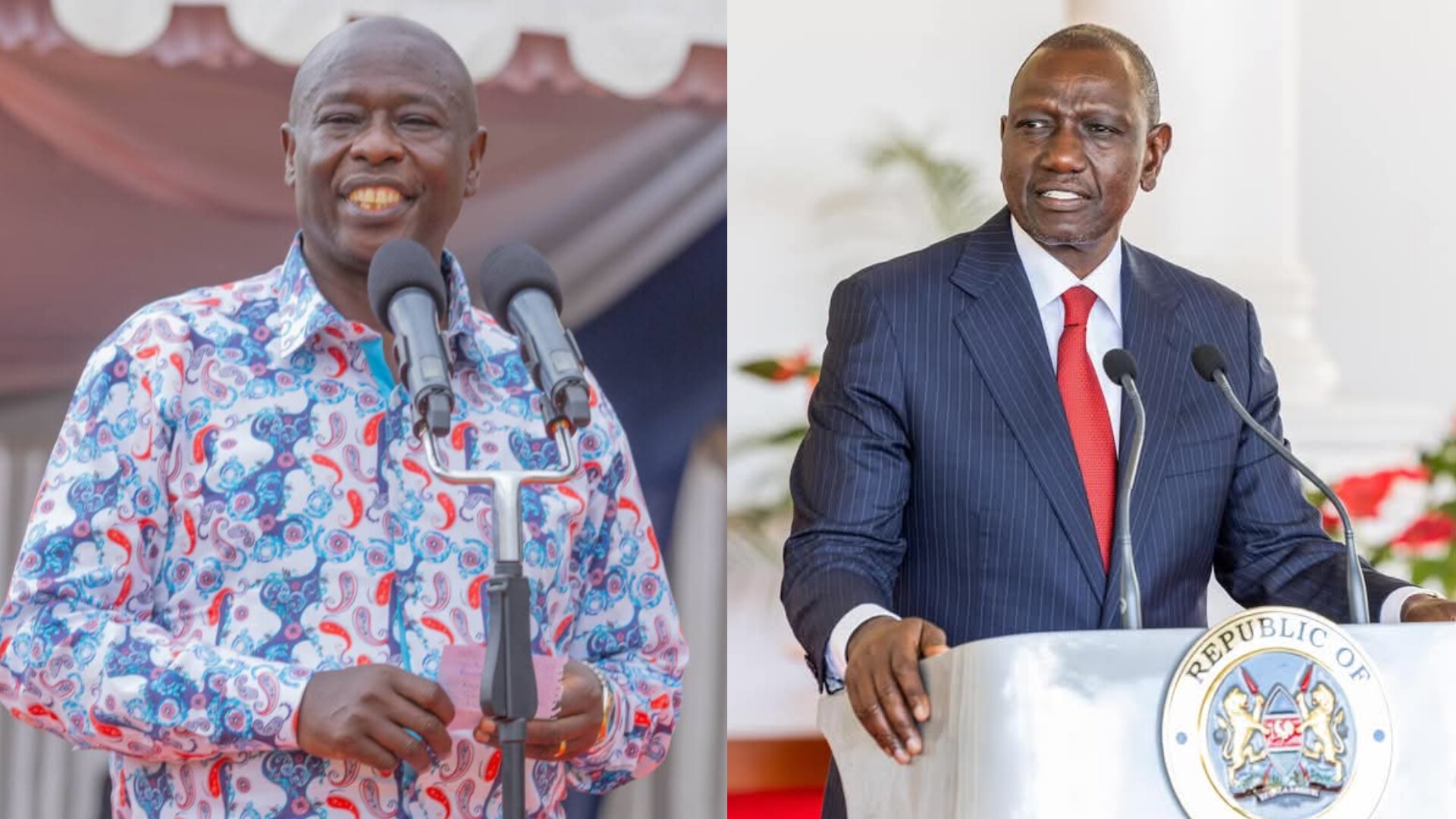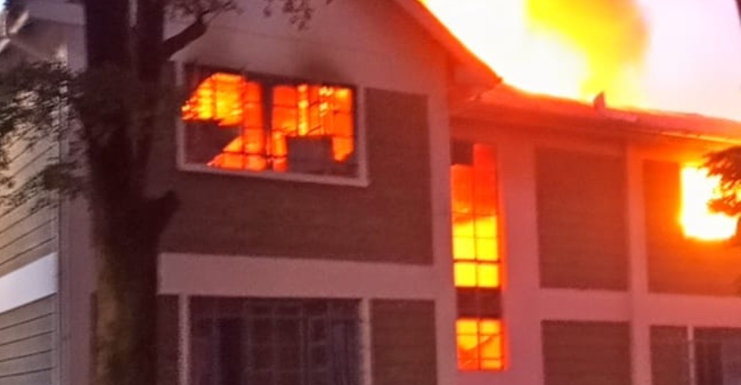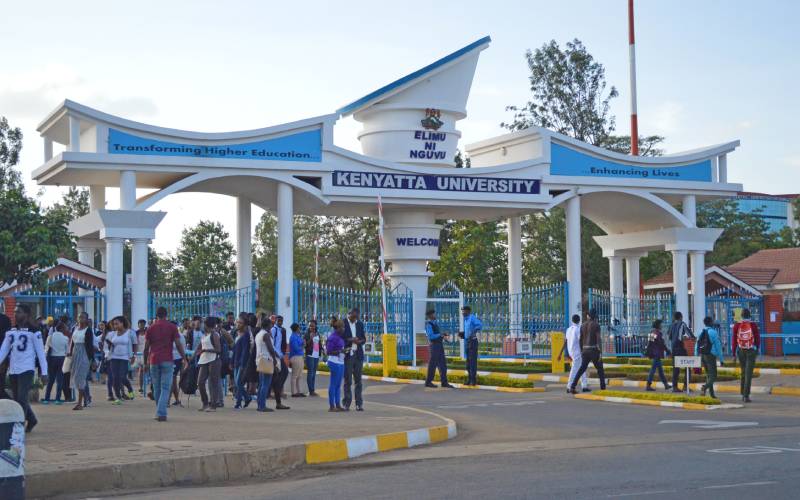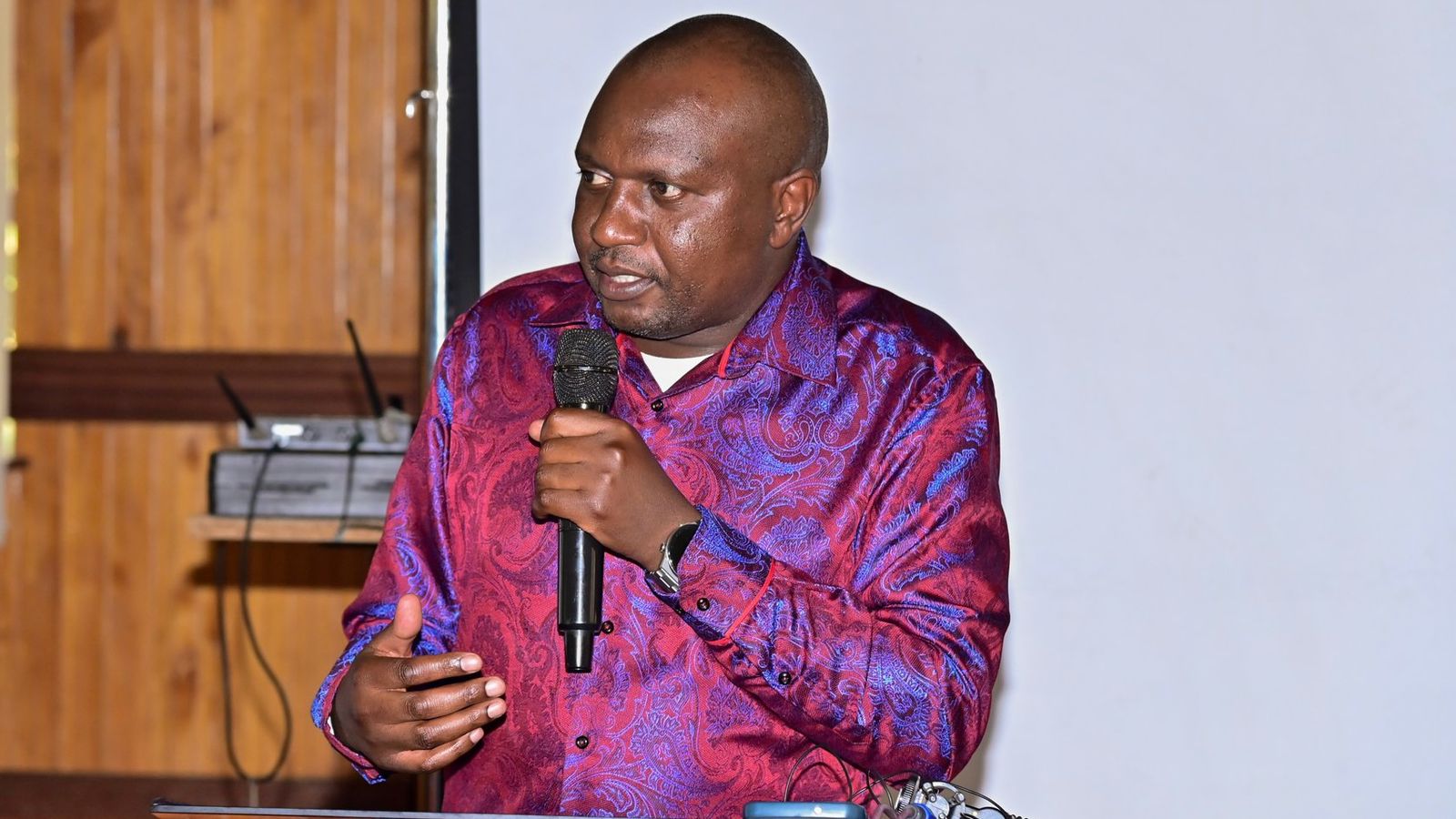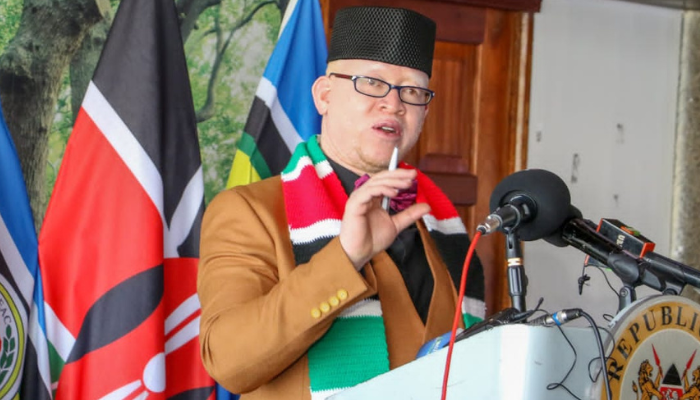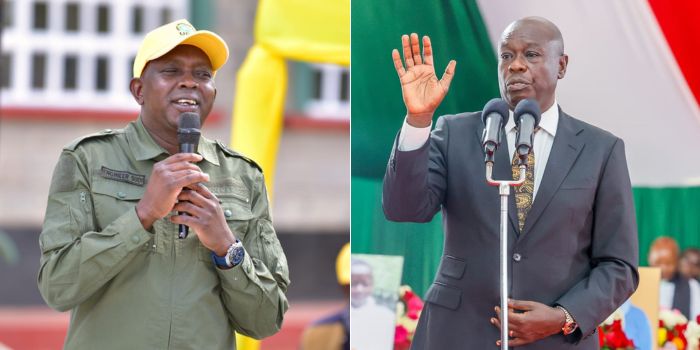I am pleased to address you on this auspicious meeting, one year to the 2022 General Election.
The Commission shall conduct the next General Elections on 9th August, 2022 pursuant to Article 136(2)(a) of the Constitution of Kenya 2010. Today therefore marks the beginning of one year countdown to the Election day (365 days)
As part of preparation towards the General Election, the Commission launched its 2020-2024 Strategic Plan and Election Operations Plan on 15th June, 2021. These documents are readily available on the IEBC website and I invite the nation to familiarize with the two documents that provide a roadmap and important timelines of the election calendar.
Let me take this earliest opportune moment to reiterate the Commission’s commitment towards delivering free, fair, transparent and credible 2022 General Election.
The Commission equally remains committed to engaging stakeholders as part of its open-door policy to foster citizen participation in the electoral process.
Read More
The Commission is cognisant of the key role the media plays in disseminating information as well as influencing and shaping public opinion and agenda. It is recognition of this significant role of the media that the Commission endeavours to work with the media sector to ensure that factual information is disseminated to the public. I therefore laud the initiative of the Kenya Media Sector Working Group (KMSWG) to partner with the Commission in the area of Elections Media Reporting.
As we may remember, I participated in a successful meeting organised by KMSWG in Diani on 3rd July, 2021 where we discussed matters related to the 2022 Electoral Calendar and emerging issues. I am pleased to note that we are building up on the successes of our collaboration and engagement as we move towards the General Election.
The one-year countdown to the 2022 General Election begins today and it is important that the media and the country at large pays attention to key electoral processes, including but not limited to voter registration, nomination of candidates, campaign period, polling day activities, counting, announcement of results and electoral dispute resolution. I want to take this opportunity to address some of the issues that are subject of national discourse and have a bearing to the upcoming elections.
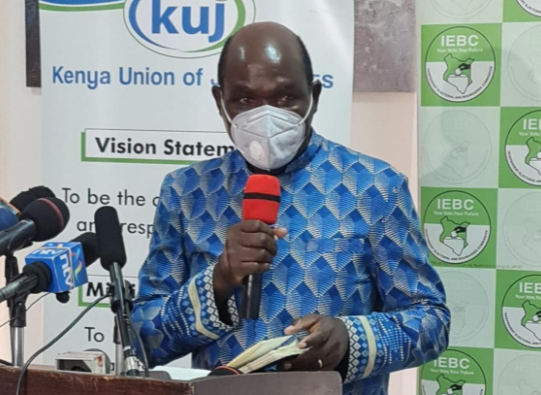
IEBC Chairman Wafula Chebukati
Two-Third Gender Rule
One of the issues of focus is the attainment of what is popularly referred to as the two thirds Gender Rule. Article 81(b) of the Constitution provides that “not more than two-thirds of the members of elective public bodies shall be of the same gender”. This provision has been attained in the County Assemblies by way of gender top-up through the party list model.
However, the realization of the two-third gender rule has remained elusive in Parliament with several unsuccessful attempts at providing legislation to operationalize the principle.
On its part, the High Court of Kenya in Katiba Institute vs. the Independent Eectoral and Boundaries Commission {2017} e KLR issued among others, orders directing political parties to make measures to formulate rules and regulations for purposes of actualising the two-third gender principle during nominations of the 290 Constituency based elective positions for members of the National Assembly and 47 County based elective positions for Members of the Senate within six months from the date of the judgement (20th April 2017).
In default the Respondent (IEBC) was directed to devise administrative mechanisms to ensure that the two-third gender principle was realised among political parties during nomination exercises for parliamentary elections.
The Commission was further directed to reject any nomination list of a political party for its candidates for the 290 constituency based elective positions for Members of the National Assembly and 47 County based positions for the Member of Senate that do not comply with the two-third gender rule.
The Commission shall therefore comply with the orders of the court by ensuring that political parties’ nomination lists for elective positions in the Senate and National Assembly comply with the two-third gender rule before they are accepted by the Commission for candidates’ registration. (The Commision previously held a meeting with PPLC to discuss this judgement and another meeting is being planned shall political parties to discuss compliance with the orders)
Transmission and Management of Election Results
During this meeting the Commission will make a detailed presentation on election results management framework. However, I wish to reiterate that the electronic and physical transmission of election results from the polling stations to the National, County and National Tallying Centres is a critical component of Election Results Management Framework.
The current election legislation stipulates that elections are conducted and results announced at the polling stations. Results as announced at the polling station are final. Section 39(1c)(a) requires the Commission to electronically transmit and physically deliver the tabulated results of an election for the President from a polling station to the constituency tallying centre and the national tallying centre.
To ensure transparency in the results management process, the Commission shall allow accredited media access to polling stations and tallying centres to cover the vote counting, announcement, collation and declaration of results.
Election Offences and the Code of Conduct
The Commission has noted an increase in incidences of insecurity during by-elections. The Commission has not only brought these incidences to the attention of the institutions charged with the responsibility of investigating and prosecuting electoral offences but has also moved the Commission to engage security agencies like the National Police Service with a view of preventing escalation of insecurity during the 2022 General Elections.
In addition, incidences of open and glaring voter bribery have been brought to the attention of the Commission as reported mainly in the social media platforms. Voter bribery is an offence under the election offences Act that the ODDP has exclusive powers to order investigations and prosecute the same. We therefore urge that stern action be taken against the perpetrators of e
Electoral related offences.
On our part, the Commission shall strictly enforce the electoral code of conduct that comes into force during the campaign period. The code empowers the Commission’s Code of Conduct Enforcement Committee to penalise candidates and political parties that perpetrate electoral malpractice during the campaign period including: violence, intimidation, discrimination and destruction of campaign materials.
In 2017 the aggrieved parties filed a total of 71 complaints, out of which 31 were prosecuted and accused persons found culpable, two (2) defaulted the orders of the Committee and were disqualified from contesting, 14 were found not culpable and dismissed for lack of merit, 14 were dismissed for want of prosecution and non-attendance, 3 were dismissed by order of High Court, 3 were withdrawn by complaints and 4 were stayed by high court through judicial review. The disputes emanated from breach of code of conduct touching on campaigns leading to violence, plagiarism and/or use of symbols of other candidates, independent candidates using political party symbols or pictures, destruction or defacing campaign materials of other candidates, amongst others.
Resignation by Public Officers
Section 43(3) of the Elections Act 2011 provides:
“A public officer who intends to contest an election under this Act shall resign from the public office at least six months before the date of election.”
For general information, the Commission would like to remind all public officers of the decision of the Court of Appeal case at Nyeri civil application No. 62 of 2017 County Government of Embu and another v Eric Cheruiyot and 15 others where the court STAYED the Judgment from the employment and Labour Relations at Kericho by Marete J.
The Commission therefore reminds all public officers who wish to contest in the upcoming General Election that they must resign six months to General Election
Election Campaign Financing Law
The Commission in compliance with sections 18 and 19 of the Election Campaign Financing Act No. 42 of 2013 set expenditure limits for candidates and parties for the 2022 General Election. The Limits have been sent to the Government Printers for publication in the Kenya Gazette. The Commission wishes to bring to the attention of stakeholders the provisions of section 18 of the Act that gives the Commission Authority to vary the spending limits by notice in the Gazette. We urge all stakeholders to interact with document on expenditure limits and communicate to the Commission in the event they feel aggrieved.
Furthermore, the Commission submitted to Parliament the Election Campaign Financing Regulations on 25th July 2016. The Regulations are for purposes of operationalising the Act and we therefore urge Parliament to approve and enact these Regulations at the earliest possible.
Funding
Final but not the least, the Commission requires adequate funding to implement electoral activities as outlined in the Election Operations Plan. For purposes of the 2022 General Election the Commission prepared a budget and requires 40.329 billion to carry out all the activities in the Election Operation Plan.
A further estimated KES.588 million is required for purposes of procuring items to be used in the COVID-19 prevention protocols including thermometer guns, sanitizers, soap and washing points. This brings the total General Election requirement to 40.917 billion.
However, the National Treasury has allocated a budget of KES.26.34billion, leaving a deficit of KES.14.577billion. it is worth noting that the 40.917 budget requirement is the bare minimum as per the electoral activities in the Election Operations Plan which are governed by the existing legal framework. We urge National Treasury to provide sufficient funds as requested.
As I conclude, I wish to encourage each one of us to keep alive this conversation on elections preparation so that Kenyans are well informed of the processes and activities within the Election Calender. I wish all of us a fruitful engagement.
![IEBC Chairman Wafula Chebukati. [Photo: Courtesy]](https://nairobileo.co.ke/storage/uploads/2020/10/IMG-20201023223747.jpg)
